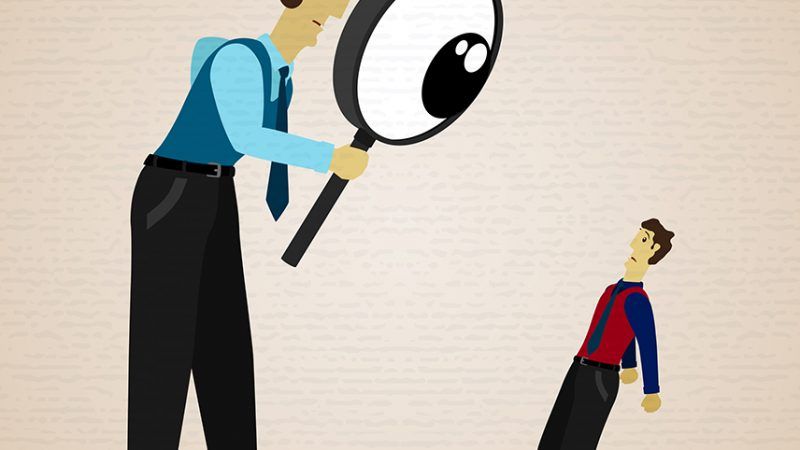How Cops Hide Surveillance Snooping From Courts

In 2004, Ascension Alverez-Tejeda and his girlfriend were stopped at a traffic light in Oregon when their car was rear-ended by a drunk driver. The police arrived and arrested the drunk, but while Alverez-Tejeda was outside dealing with the situation, a thief jumped in his car and tore off down the road.
Police recovered the car and, after obtaining a search warrant from a judge, found in it cocaine and methamphetamine that Alverez-Tejeda was trafficking from California to Washington.
It looked like a case of very bad luck for Alverez-Tejeda. The truth didn't come out until the trial: The whole thing had been staged. The only ones who weren't in on the plot were Alverez-Tejeda, his girlfriend, and the judge who signed the warrant. The Drug Enforcement Administration (DEA), relying on surveillance and wiretaps, had tipped off local law enforcement to Alverez-Tejeda. The cops then constructed an elaborate ruse to gain probable cause to search his car.
Alverez-Tejeda's case—ultimately upheld by a federal appeals court in 2007—is a particularly complicated example of "parallel construction," a tactic used by law enforcement to hide its investigative methods from courts and defendants by building another plausible evidence chain. A January report by Human Rights Watch (HRW), which examined 95 similar cases, says federal agencies may be regularly laundering intelligence information to each other, as well as to local law enforcement, to build criminal investigations while concealing the origins of the evidence. The report argues parallel construction raises numerous civil rights concerns, chiefly the right to a fair trial.
"When you have parallel construction, you have defendants and even judges who don't know how evidence was gathered and can't challenge the constitutionality of that," Human Rights Watch researcher Sarah St. Vincent says. "What you have is very one-sided, where the government, on its own, is deciding what practices it thinks are legal."
St. Vincent argues parallel construction can hide illegal searches that violate defendants' Fourth Amendment rights or result in exculpatory evidence not being turned over, violating the Fifth Amendment. It can also hide discriminatory actions by law enforcement.
Reuters first published details about the practice in a 2013 investigation that revealed that the DEA's Special Operations Division—whose activities earned it the nickname "the dark side"—was regularly funneling tips obtained from wiretaps, surveillance, and a massive telephone database to field agents and other law enforcement agencies, all while training its agents on how to keep the source of the tips from ending up in court. A subsequent USA Today investigation found the DEA and Justice Department had been collecting logs of billions of phone calls originating from the U.S. in a program that predated 9/11 by more than a decade.
The HRW report cites one case, Arizona v. Wakil, where the DEA requested a so-called "whisper stop" from local police to conceal the agency's warrantless use of a GPS tracker on a suspected drug trafficker's rental car. An Arizona judge overturned the defendant's conviction only after that fact emerged in federal court.
Although much of the investigative reporting on parallel construction has focused on the DEA, Human Rights Watch found that the Bureau of Alcohol, Tobacco, Firearms and Explosives, U.S. Immigration and Customs Enforcement, the Department of Homeland Security, and the FBI had all requested such stops.
At times, prosecutors have withdrawn charges or offered significant plea deals to defendants in cases that threatened to expose details of how law enforcement uses cellphone tracking technology. Several police departments have claimed that nondisclosure agreements with the FBI prohibit them from releasing any information on the devices.
The HRW report recommends that Congress pass laws requiring the government to disclose the origins of evidence and investigations to defendants. Sen. Rand Paul (R–Ky.) also called for a ban in a January op-ed at Reason. "Government should be disallowed from taking that information and developing a parallel construction of a case, where the illegally obtained information is not used in court but is used by law enforcement to develop other information to mount a prosecution," Paul wrote. "Our Founders gave us the Fourth Amendment to prevent a tyrannical government from invading our privacy, and we are fools to relinquish that hard-won right because of fear."
But because of the practice's very nature, it's hard to know how often defendants are being charged and convicted based on secret evidence. "The problem with researching a coverup," St. Vincent says, "is you're not supposed to know what happened."
This article originally appeared in print under the headline "How Cops Hide Surveillance Snooping From Courts."


Show Comments (64)